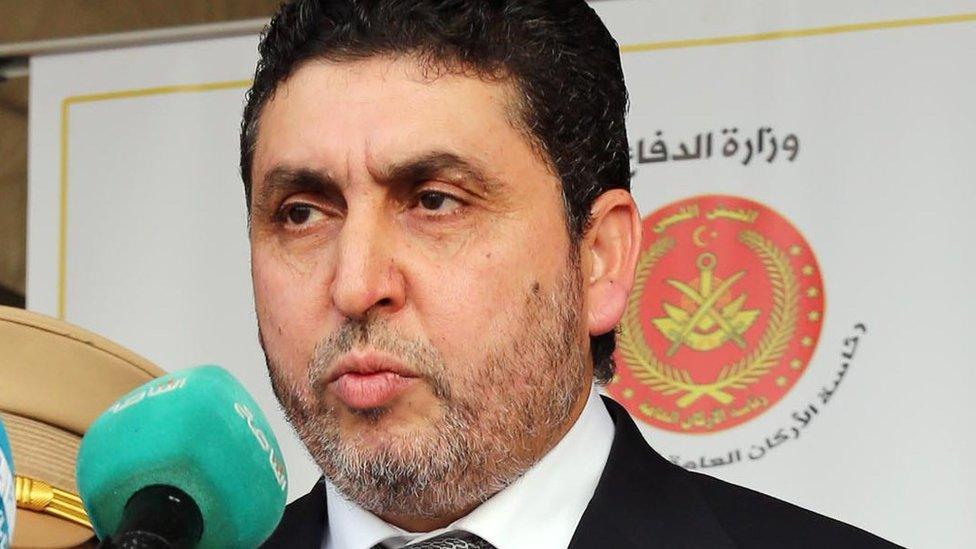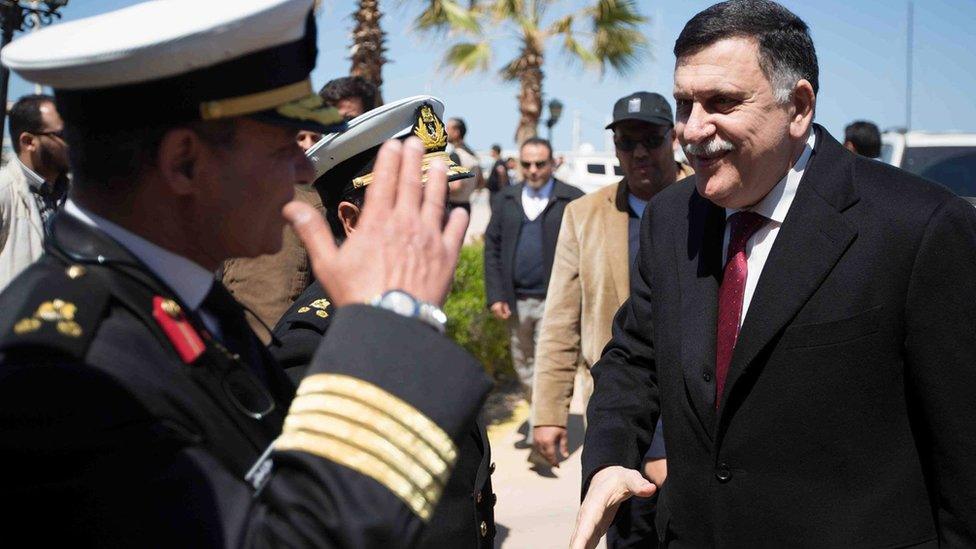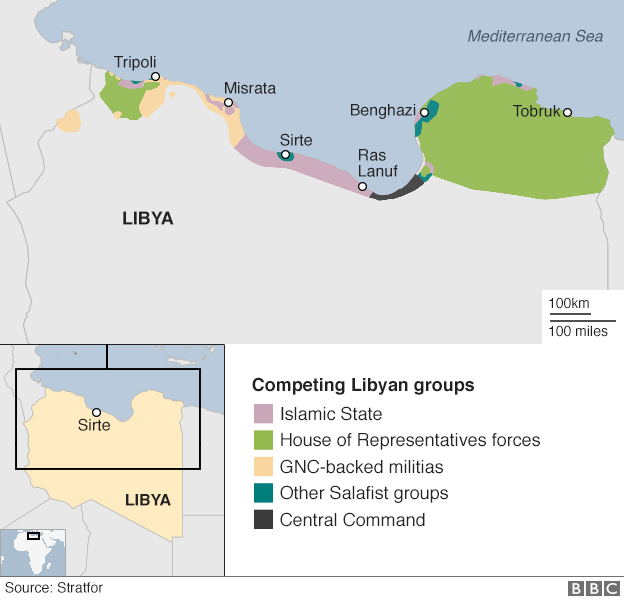Libya government: Tripoli 'U-turn' over stepping aside
- Published

Khalifa Ghweil has been among hardliners who have been opposed the UN-brokered unity deal
The head of a coalition ruling western Libya and the capital, Tripoli, appears to have reversed a decision to dismiss his administration.
The statement, posted on Khalifa Ghweil's website, has caused confusion.
In it he threatens to prosecute any of his ministers who co-operate with the leaders of a UN-back unity government waiting to take national control.
Tripoli's justice ministry had said earlier that ministers were standing aside to prevent further bloodshed.
The UN-brokered unity deal, agreed in December, is aimed at reconciling splits after five years of conflict.
Libya has been in chaos since the 2011 overthrow of long-serving ruler Muammar Gaddafi by Nato-backed forces.
Since 2014 the country has had two competing administrations, the one in Tripoli, which is backed by powerful militias, and the other about 1,000km (620 miles) away in the eastern port city of Tobruk.
Some rival lawmakers signed up to the UN agreement to form a unity government but the deal has not yet been backed by all the country's many militia brigades that formed after the uprising.
The Tobruk-based administration, formed by a parliament chosen in national elections in June 2014, is split over its backing for the unity government.

Analysis: Rana Jawad, BBC North Africa correspondent

There are supporters of the unity government in Tripoli, seen here in Martyrs' Square on Friday
It is not uncommon in Libya to get contradictory statements within the space of minutes or hours from an institution or official.
In the broader context of developments this month, the two statements published by members of the Tripoli-based administration are indicative of a split within this group and its militia backers - as well as what looks like a last-ditch effort to remain in power.
This is because many stand to lose their privileges with the new unity government trying to take the helm.
Nevertheless it remains unclear who is in charge given the claims and counter-claims. We are likely to see more of this posturing until the UN-backed government is able to assert itself.

Speaking to the BBC, a Tripoli government adviser said, "Things are not clear at the moment."
In his statement, Mr Ghweil warned ministers in his National Salvation Government: "Given the requirements of public interest... you are requested to continue your mission in accordance with the law."

Unity PM Fayez Sarraj and his colleagues arrived at a naval base in Tripoli last week
Leaders of the unity government, known as the Presidency Council led by Fayez Sarraj, arrived in Tripoli a week ago and have been operating from a naval base.
At the time Mr Ghweil said they were not welcome and urged them to "surrender" or return to Tunisia where they had been based for the last few months.
Western countries want the unity government to unite as many factions in Libya as possible against an increasingly powerful affiliate of the group known as Islamic State.
The UN says it is considering lifting sanctions on Libya's estimated $67bn (£46.8bn) sovereign wealth fund if it can regain control of the country.
